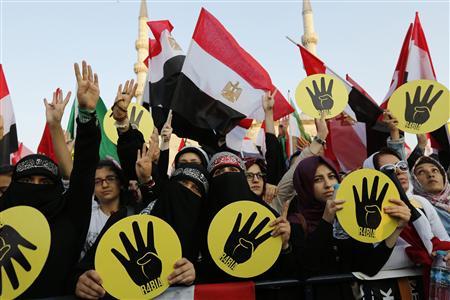 A controversial report into the activities of the Muslim Brotherhood in Britain will not be published in full, the government has confirmed, with a summary likely to come out six months after it was originally meant to be released.
A controversial report into the activities of the Muslim Brotherhood in Britain will not be published in full, the government has confirmed, with a summary likely to come out six months after it was originally meant to be released.
Downing Street has told the Financial Times that only the “principal findings” of the report will be made public, and those will not come out until January.
Number 10 insisted there was “no change” to the plans for publication. But when David Cameron announced the investigation in April, advisers said they expected it to be published in July and those close to the report had hoped it would be released in full.
Downing Street said: “The principal findings of the report will be published in the coming weeks.”
The report has been dogged by delays as officials and ministers tussle over its findings. Whitehall aides say it will not recommend proscribing the Brotherhood, an organisation that has prospered in the UK while being attacked for promoting extremism in certain Gulf states.
But ministers are concerned that this central finding could anger key commercial allies in the Gulf such as Saudi Arabia and the United Arab Emirates, who some ministers say pressurised Mr Cameron into commissioning an investigation of the Brotherhood’s activities in the first place.
The UAE followed the example of the Saudis last week by banning the Brotherhood and listing it as a terrorist organisation. That was the latest example of the group’s fall in fortunes since one of its leaders, Mohamed Morsi, was ousted as Egyptian president last year.
According to those who have seen the British report, it will not offer policy prescriptions, but instead seek to spell out a network of linked organisations, some of which are implicated in extremist activity. Ministers will then have to decide what to do about each of these groups, and are likely to launch further reviews into other organisations when the report is published.
But some in government have been irritated at leaks from the report which seek to portray it as more conclusive than it is likely to be.
One government official caused upset in October by telling the Sunday Telegraph ministers would pursue certain individuals using the “Al Capone method”. The person said: “We cannot get them for terrorism but I bet you they don’t pay their taxes.”
One adviser said: “It’s a dense, carefully written report. But if people are looking for it to give hard and fast answers, they will be disappointed.”
While some in government are trying to beef up the report’s findings, ministers are also aware that if it is too tough it could annoy Qatar, which has backed the Brotherhood and with which the UK has just signed an intelligence-sharing agreement.
One person involved in compiling the report said: “The geopolitics of this are incredibly complex, especially when we are trying to form a fragile coalition to fight Isis in Iraq and Syria.”
The situation has been further complicated by the UAE’s decision to proscribe not only the Muslim Brotherhood but also raft of other organisations, including the Muslim Association of Britain. The MAB has since contacted the Foreign Office to enlist its help in fighting against the ban.
